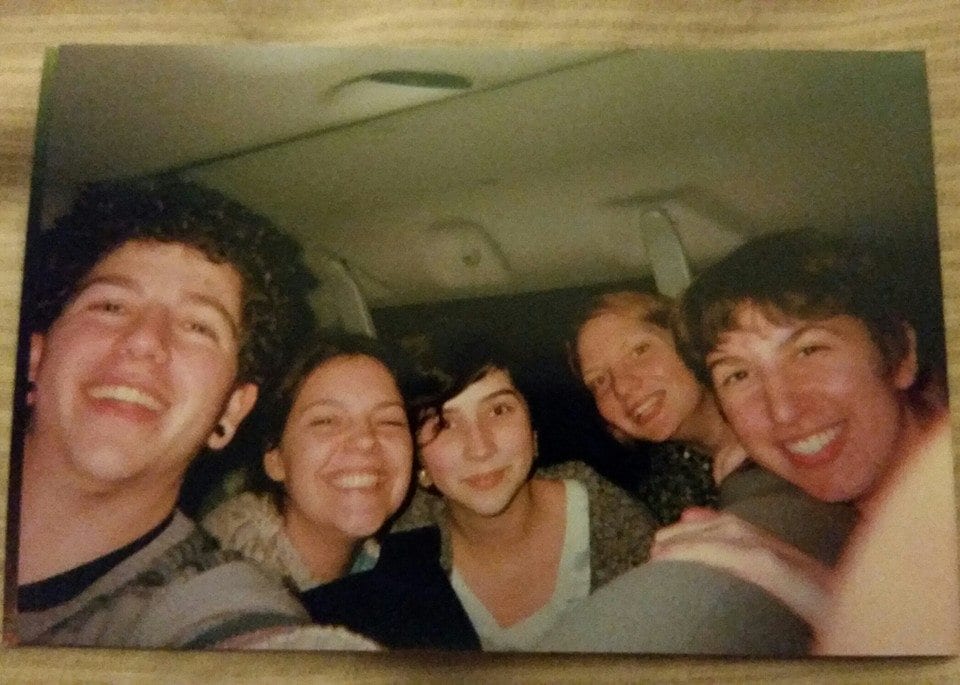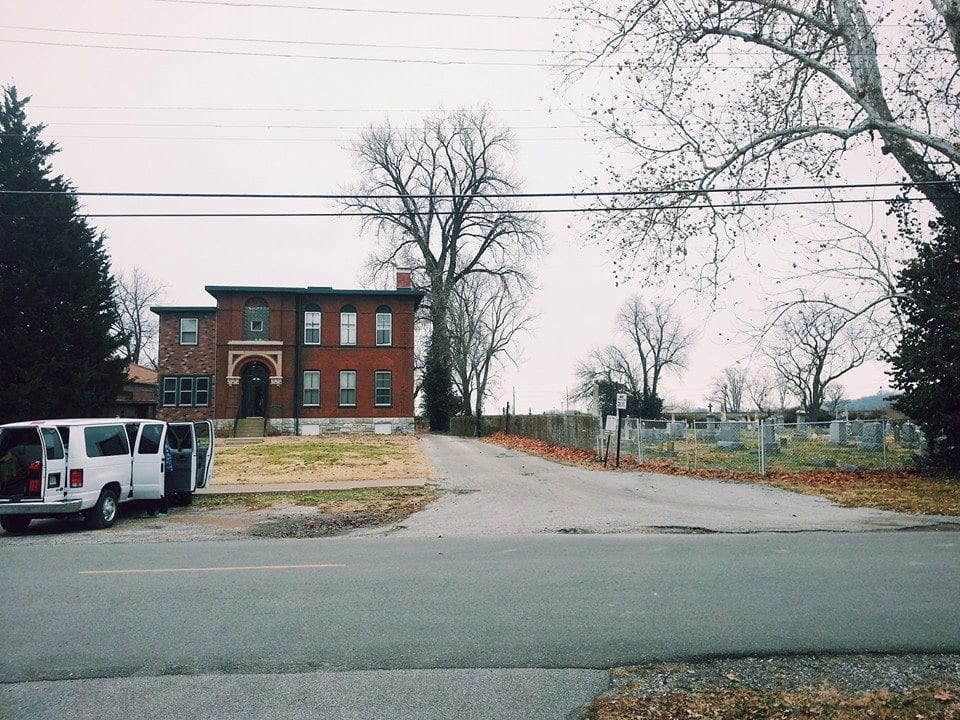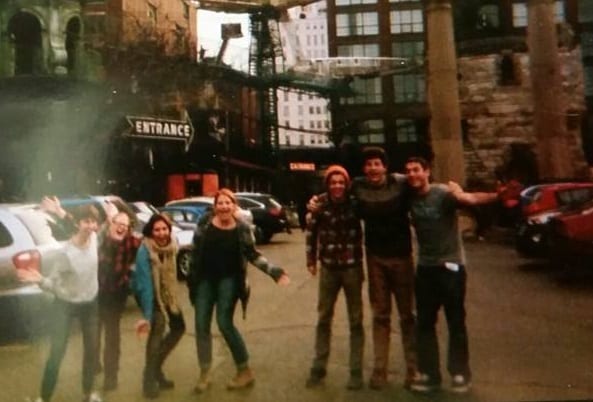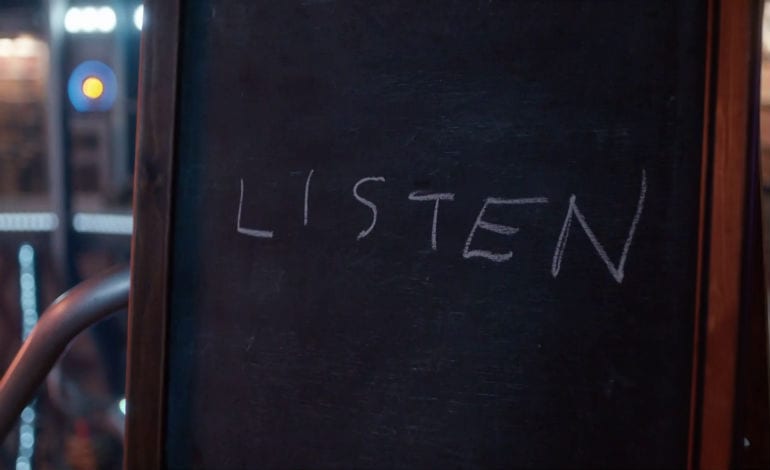Catrien Egbert is a student at DePaul University who just returned from a December Vincentian Service Immersion Trip. We close the 2014 blog year with her reflection.
It has been two weeks, three days, and two hours since I returned home from my week-long service immersion trip to East St. Louis, Illinois, and if I’m being honest I am no closer to being able to put my experience down into words than I was a week ago when I first opened this document and began this reflection.
How do I explain? It begins on December 2nd when I found myself – along with nine others – driving through Illinois and Missouri en route to an unknown city. We knew little about East St. Louis besides the fact that it was formerly an industrial area of middle-class wealth plagued by the loss of industry, jobs, and company investment – now with great poverty and crime.
When we arrived at the Hubbard House, we were split into three groups based on daily service locations – a domestic abuse shelter, a soup kitchen/thrift store/afterschool center, and at a Catholic K-8 school (my service location).
Though we were only at our sites for a few days, the welcoming nature of the East St. Louis community and the openness of those involved in our service locations gave our group a sense of purpose and belonging almost immediately. The opportunity to form relationships – both with those we were serving, and with each other – was heightened by the immersive nature of the trip. On the first morning of the trip we were strangers but by that evening we were housemates, cooking together, working out shower schedules, sharing hopes and fears for the upcoming week, and realizing the need for solidarity.
Through the week that followed, I felt like I became an honorary member of the community, set apart by privilege but working my best to understand and aid those I met in whatever way I was needed. Even little things – setting up one of the school’s bulletin boards, or grading multiplication tests – played a role in allowing me to do what must be done. Through acts small and large I learned, and every day changed my worldview a little more. Reentry into my “old life” has been a challenge, but in my reacclimation I’ve become aware of just how differently I see things.
I am aware that everything I do now has become a conscious act.
So often before, I’d gone through my life half-asleep, living but not realizing, acting but not experiencing. I noticed it the first time I put on makeup after my week of simplicity – as I combed black mascara through my eyelashes. I was aware driving on the familiar streets of my hometown. I was aware opening Christmas presents. I regard actions I do now with intention.
I saw things so narrowly before, focusing mostly on myself. Now, I feel as though my intentions are different: I’m concerned about helping others and exploring injustices. It’s impossible to change the world with every act, but it is possible to make decisions that better my life and the lives of those around me.
Something that has helped me stay present and intentional comes from an important Vincentian lesson I learned on my trip: the ability to listen.
Before, I never realized how often I don’t really hear what others say. In conversations, I’d let my mind slip to what I thought, or what I was going to say next. In East St. Louis, I became aware of what it really meant to talk to someone. I regarded conversations with intention; I slowed down my thoughts and actions and worked on genuinely considering what others had to say.
In the context of my DePaul team, communal service called for nightly reflections and debriefings and gave me the benefit of perspectives not my own. When I had questions, I’d pose them to my group, and through discussion we came to conclusions by the sharing ideas. The opportunity to have 9 sounding boards made me realize how wonderful the diversity of human thought is. Being without our cell phones for the week helped us to pay attention to each other – not just in reflections, but on a regular basis. “How are you feeling, mentally and physically?” became an inside code, a spoken permission to share thoughts and dreams.
In the context of my service with people in East St. Louis, listening helped me to understand complex themes surrounding areas in need. Poverty, homelessness, abuse, race, socioeconomic class, and corruption are incredibly difficult concepts to grasp. It’s work to see them, but to seek understanding of the systems and community these issues affect is even harder, especially when understanding meant confronting my own ingrained beliefs. What made comprehension possible was listening to experiences.
For me, it involved teaching a second grader – all bright eyes and loving hugs – how to jump rope, and learning from the gym teacher afterwards that she lives with her grandma and 14 other children while her single mother is undergoing rehab. Through my service I was confronted with harsh, disparaging realities – but also pure, uplifting examples of love and family. I found it was important to hear both.
By listening, I allow myself the opportunity to step outside my worldview and consider seeing things through the eyes of someone else. I learned that there is a difference between being a helper and being a “tourist,” and if I am not allowing myself the opportunity to listen and comprehend I can’t truly take anything in. It’s hard to help if I’m seeing things the way I’m used to, by basing what should be done by what I think should be done, by judging based on what I know – which, admittedly, can be very little. As a human being, I am both burdened and blessed by the enormity of experience. Suffering, loss, joy, and triumph are not transferable: there is no way for me to understand what another is enduring. The only way to gain some sense is to listen.
The trip to East St. Louis continues to impact me. I’m constantly testing to see if I remember – what did the houses look like? How did it feel driving through the city streets? What were the names of the children in the classes I worked with? Their names have become a mantra to me, a reminder to try to always have my eyes open, to always be aware of those around me, to always act with purpose and intention, to always challenge inequality and prejudice, to always listen to the stories of others, and to always ask myself the omnipotent Vincentian question: What must be done?
First three photos courtesy of Catrien. Last photo from http://plusbits.mx/wp-content/uploads/2014/09/Doctor-Who-Listen.jpg



